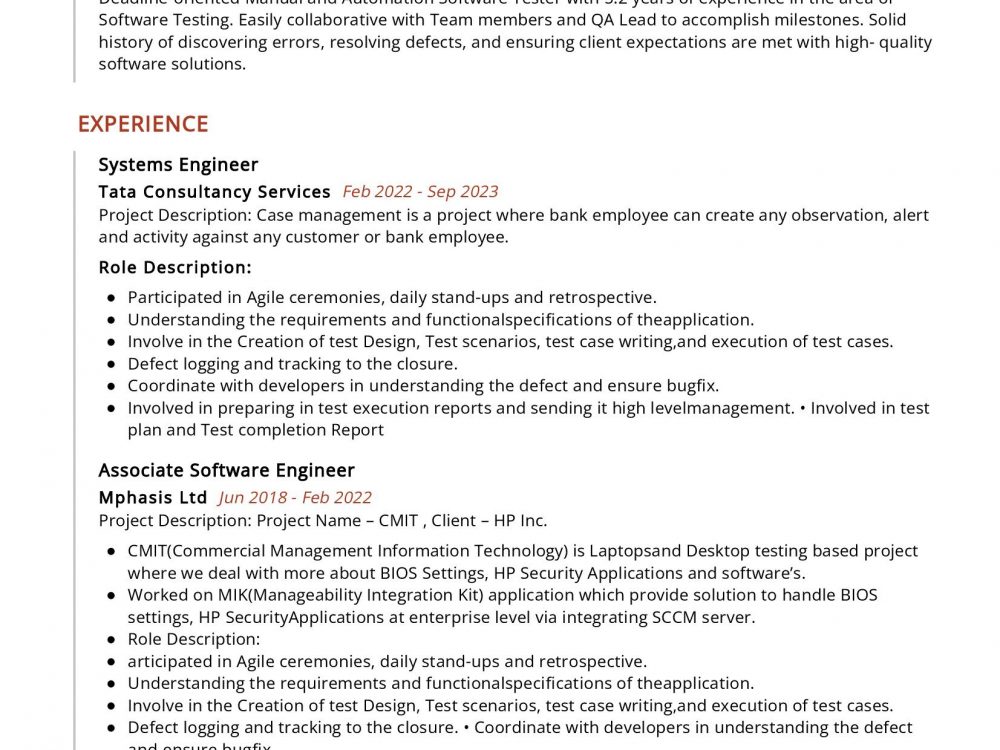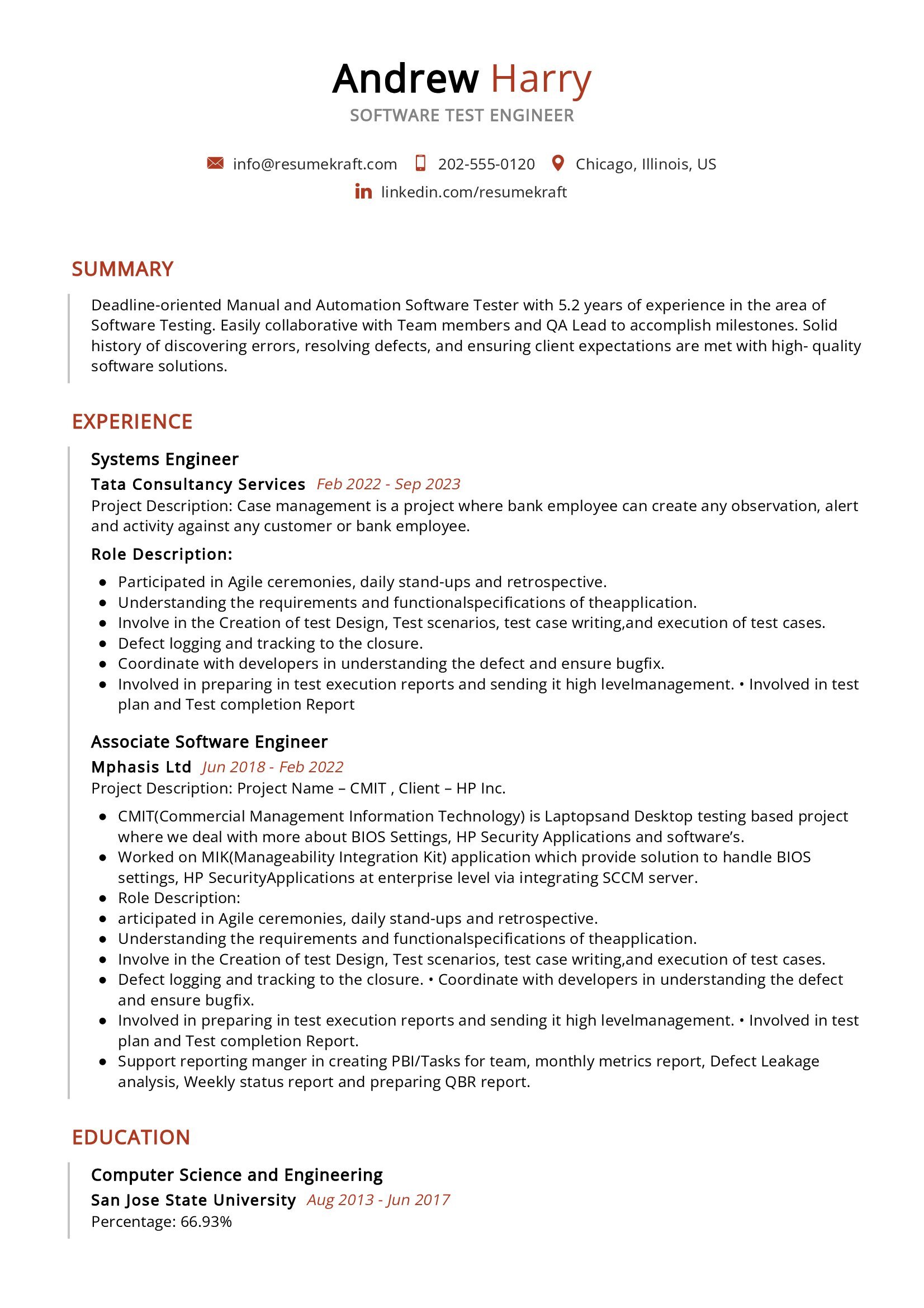What is the Role of a Software Test Engineer?
In today’s rapidly evolving technology landscape, the role of a Software Test Engineer is of paramount importance. This position requires a unique blend of technical prowess, meticulous attention to detail, and a passion for ensuring the quality of software applications. Let’s dive deep into the multifaceted world of a Software Test Engineer, a role that plays a crucial part in delivering high-quality software products to end-users.
A Software Test Engineer, often referred to as a QA Engineer (Quality Assurance Engineer), is responsible for ensuring that software applications meet the specified quality standards and function correctly. They work closely with developers, product managers, and other stakeholders to identify issues, design test plans, execute test cases, and report defects. Their role is essential in preventing software defects from reaching users, thereby enhancing the overall user experience and minimizing business risks.
What are the Software Test Engineer Job Requirements?
Becoming a proficient Software Test Engineer involves meeting a series of specific requirements and developing a diverse skill set. This journey can be demanding but highly rewarding for those who are passionate about software quality. Here are the prerequisites to embrace the role of a Software Test Engineer:
- A Bachelor’s degree in Computer Science, Information Technology, or a related field, providing a solid foundation in software engineering principles.
- Strong analytical skills to identify potential issues and weaknesses in software applications.
- Knowledge of testing methodologies, including manual and automated testing, and the ability to select the most appropriate approach for a given project.
- Experience with testing tools and frameworks, such as Selenium, JUnit, or TestNG, depending on the technology stack.
- Effective communication skills to collaborate with cross-functional teams and document test cases and defects.
- Attention to detail and a methodical approach to testing to ensure all aspects of software functionality are thoroughly evaluated.
- Adaptability to work in dynamic development environments and the ability to meet project deadlines.
Obtaining certifications in software testing, such as ISTQB (International Software Testing Qualifications Board), can further enhance your credibility as a Software Test Engineer.
What are the Responsibilities of a Software Test Engineer?
The role of a Software Test Engineer encompasses a wide range of responsibilities, all aimed at ensuring the quality and reliability of software products. Here are the key responsibilities that define this role:
- Designing and developing comprehensive test plans and test cases based on software requirements and user stories.
- Performing manual and automated testing to identify defects, inconsistencies, and usability issues.
- Collaborating with developers to reproduce and investigate reported defects, ensuring clear and detailed defect reports.
- Creating and maintaining test documentation, including test cases, test data, and testing environments.
- Participating in test strategy and test approach discussions, contributing to the overall testing strategy for the project.
- Executing regression testing to verify that software updates and enhancements do not introduce new defects.
- Conducting performance testing to evaluate the speed, stability, and scalability of software applications.
- Contributing to the improvement of testing processes and methodologies within the organization.
Each responsibility brings its own set of challenges and opportunities for continuous learning and improvement, shaping you into a proficient Software Test Engineer.
Software Test Engineer Resume Writing Tips
Creating an effective resume as a Software Test Engineer is crucial to stand out in a competitive job market. Your resume should showcase your skills, experience, and achievements in the field of software testing. Here are some tips to help you craft a compelling resume:
- Highlight your testing experience, emphasizing the types of applications and technologies you have worked with.
- Describe your involvement in test planning, test case design, and defect management, demonstrating your end-to-end testing capabilities.
- Include metrics and results, such as the number of defects found and resolved, to quantify your impact on software quality.
- List any relevant certifications you hold, such as ISTQB or certifications specific to test automation tools.
- Customize your resume for each job application, aligning your skills and experience with the specific requirements of the role.
Your resume is your professional snapshot, so ensure it effectively communicates your expertise as a Software Test Engineer.
Software Test Engineer Resume Summary Examples
Your resume summary is the first impression you make on potential employers. It should be concise yet powerful, encapsulating your experience and value as a Software Test Engineer. Here are some examples to inspire your resume summary:
- “Experienced Software Test Engineer with a proven track record of delivering high-quality software products through rigorous testing and defect management.”
- “Detail-oriented QA Engineer with a passion for ensuring software reliability and a strong background in test automation.”
- “Results-driven Software Tester skilled in manual and automated testing, dedicated to improving software quality and user satisfaction.”
Your resume summary should be tailored to your unique strengths and the specific job you’re applying for.
Create a Strong Experience Section for Your Software Test Engineer Resume
Your experience section is the core of your resume, where you can showcase your contributions to previous employers and your impact on software quality. Here are some examples to help you craft a compelling experience section:
- “Led a team of QA testers in testing a complex e-commerce platform, resulting in a 30% reduction in post-release defects.”
- “Designed and implemented automated test scripts for a web application, reducing testing time by 50% and improving test coverage.”
- “Collaborated with cross-functional teams to define acceptance criteria, ensuring clear communication of testing requirements.”
Each experience bullet should highlight specific achievements and contributions, demonstrating your value as a Software Test Engineer.
Sample Education Section for Your Software Test Engineer Resume
Your educational background is essential in showcasing your foundation in software testing. Here’s how you can format your education section:
- Bachelor of Science in Computer Science, XYZ University, 2015.
- Master of Software Engineering, ABC University, 2017.
- ISTQB Certified Tester – Foundation Level, 2016.
Your educational qualifications validate your knowledge and commitment to the field of software testing.
Software Test Engineer Skills for Your Resume
Your skill set as a Software Test Engineer is your toolkit for ensuring software quality. Here are the essential skills you should highlight in your resume:
Soft Skills:
- Attention to detail: Thoroughly reviewing software for defects and inconsistencies.
- Analytical thinking: Identifying potential issues and devising effective testing strategies.
- Communication: Collaborating with teams and documenting test cases and defects clearly.
- Time management: Prioritizing testing tasks and meeting project deadlines.
- Adaptability: Adjusting to changing project requirements and technology stacks.
Hard Skills:
- Manual testing: Evaluating software functionality through hands-on testing.
- Test automation: Creating and executing automated test scripts using tools like Selenium.
- Test case design: Developing comprehensive test plans and test cases.
- Defect management: Identifying, reporting, and tracking defects to resolution.
- Performance testing: Assessing software speed, stability, and scalability.
Each skill in your toolkit contributes to your effectiveness as a Software Test Engineer.
Most Common Mistakes to Avoid When Writing a Software Test Engineer Resume
To create a standout resume, it’s crucial to avoid common mistakes that can hinder your chances of landing your dream job. Here are some mistakes to watch out for:
- Being too generic: Tailor your resume to each job application to highlight your relevant skills and experience.
- Focusing on responsibilities, not achievements: Use specific examples to demonstrate how you’ve contributed to software quality.
- Neglecting the cover letter: A well-crafted cover letter can complement your resume and showcase your enthusiasm for the role.
- Using jargon excessively: Ensure your resume is understandable to both technical and non-technical readers.
- Failing to proofread: Typos and errors can detract from your professionalism, so review your resume carefully.
Avoiding these common mistakes will help you create a polished and effective Software Test Engineer resume.
Key Takeaways for Your Software Test Engineer Resume
As you conclude your journey in crafting a compelling Software Test Engineer resume, remember these key takeaways:
- Highlight your testing expertise and achievements to demonstrate your impact on software quality.
- Showcase your ability to collaborate with cross-functional teams and adapt to changing project requirements.
- Quantify your contributions with metrics and results to illustrate your effectiveness as a Software Test Engineer.
- Customize your resume for each job application, aligning your skills with the specific role requirements.
Now, you’re well-equipped to create a resume that not only reflects your skills and experience but also captures the attention of potential employers in the competitive field of software testing.
Finally, feel free to utilize resources like AI Resume Builder, Resume Design, Resume Samples, Resume Examples, Resume Skills, Resume Help, Resume Synonyms, and Job Responsibilities to create a standout application and prepare for the Software Test Engineer job interview.


